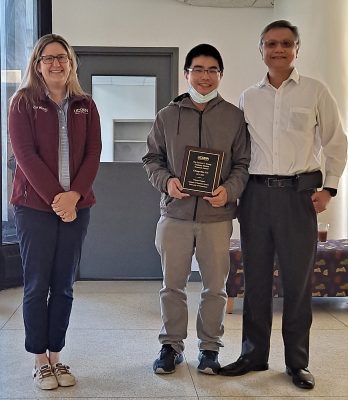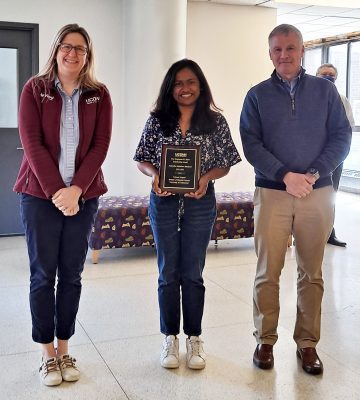from UConn Today
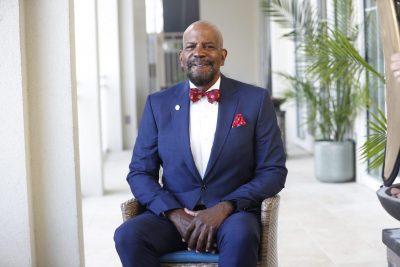
Cato T. Laurencin, the University Professor and Albert and Wilda Van Dusen Distinguished Endowed Professor at the University of Connecticut will receive the 2023 Priestley Medal, the highest honor of the American Chemical Society.
He is recognized as the leading international figure in polymeric biomaterials chemistry and engineering who has made extraordinary scientific contributions, while at the same time he has had profound contributions to improving human health through the results of his work. While trained in polymeric chemistry, Laurencin’s overall training is broad and interdisciplinary. He received his B.S.E. in Chemical Engineering from Princeton University. He received his Ph.D. in Biochemical Engineering/Biotechnology from the Massachusetts Institute of Technology and simultaneously received his M.D., Magna Cum Laude from the Harvard Medical School. He then joined the faculty of the Massachusetts Institute of Technology and opened a polymer chemistry research laboratory. At the same time he trained and became a board certified orthopaedic surgeon.
Dr. Laurencin produced seminal work on polymeric nanofiber chemistry technology for biomedical purposes, heralding the new field. He pioneered the understanding and development of polymer-ceramic systems for bone regeneration for which the American Institute of Chemical Engineers named him one of the 100 engineers of the modern era at its Centennial celebration. In a three decade collaboration with Professor Harry Allcock at Penn State, Laurencin worked in the development of polyphosphazenes for biomedical purposes. Dr. Laurencin has had breakthrough achievements in the areas of materials chemistry and engineering of soft tissue implants for regeneration of tissue including the development of the Laurencin-Cooper (LC) Ligament for anterior cruciate ligament regeneration (knee). The development of the LC Ligament was highlighted by National Geographic Magazine in its “100 Discoveries that Changed the World” edition.
In his latest work, Dr. Laurencin has pioneered a new field, Regenerative Engineering, described as the Convergence of areas such as nanomaterials science and chemistry. His work has described the chemistry of signaling molecules for tissue regeneration and he published this work in Plos One (https://doi.org/10.1371/journal.pone.01016272014). He demonstrated the ability these molecules in combination with polymeric materials chemistry to induce tissue regeneration. In his most recent work he has used principles of polymer chemistry to create cell-like structures. This has allowed the creation of what is being considered a new class of stem cells: synthetic artificial stem cells (SASC). The work was recently published in the Proceedings of the National Academy of Sciences.
The impact of the new field has become clear. The NIH Awarded him their highest and most prestigious award, the NIH Director’s Pioneer Award for his field of Regenerative Engineering. The NSF awarded him their most transformative grant, the Emerging Frontiers in Research and Innovation Grant (EFRI) for Regenerative Engineering. Dr. Laurencin is the Editor-in-Chief of Regenerative Engineering and Translational Medicine, a journal published by Springer Nature. He is the Founder of the Regenerative Engineering Society (now a community of the American Institute of Chemical Engineers). The American Institute of Chemical Engineers Foundation created and endowed the Cato T. Laurencin Regenerative Engineering Founder’s Award honoring Dr. Laurencin’s work and legacy in this new field. He is the first individual to receive highest distinctions across science, engineering, medicine and technology for this work. In science, he received the Philip Hauge Abelson Prize from the American Association for the Advancement of Science awarded “for signal contributions to the advancement of science in the United States”. He was awarded both the highest/oldest honor of the National Academy of Engineering (the Simon Ramo Founders Award) and one of highest/oldest honors of the National Academy of Medicine (the Walsh McDermott Prize). And he received the National Medal of Technology and Innovation, our nation’s highest for technological achievement in ceremonies at the White House. Most recently, he received the 2021 Spingarn Medal given for the “highest or noblest achievement by a living African American during the preceding year or years in any honorable field.” The highest award of the NAACP, they stated “his exceptional career has made him the foremost engineer-physician-scientist in the world.”
Dr. Laurencin has also profoundly contributed to mentoring and fostering diversity. He has been responsible for the development of a generation of underrepresented engineers and scientists. In receiving the American Association for the Advancement of Science Mentor Award, it was noted that the majority of African-American faculty in bioengineering had been mentored by Laurencin. For his work in mentoring, he was honored by President Barack Obama with the Presidential Award for Excellence in Science, Math and Engineering Mentoring. Remarkably, he received the 2021 Hoover Medal given jointly by the American Institute of Chemical Engineers, the American Society of Mechanical Engineers (ASME), the American Society of Civil Engineers (ASCE), the American Institute of Mining, Metallurgical and Petroleum Engineers (AIME) and the Institute of Electrical and Electronics Engineers (IEEE), The purpose of the medal is “to recognize great, unselfish, non-technical services by engineers to humanity.” Dr. Laurencin’s extraordinary commitment to inclusion, equity and fairness along with his legendary work in mentoring lead to his selection.
Dr. Laurencin’s life, career and philosophy are contained in his recently published biography entitled “Success is What You Leave Behind,” published by Elsevier.
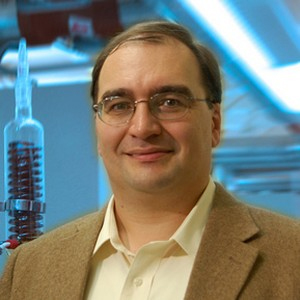
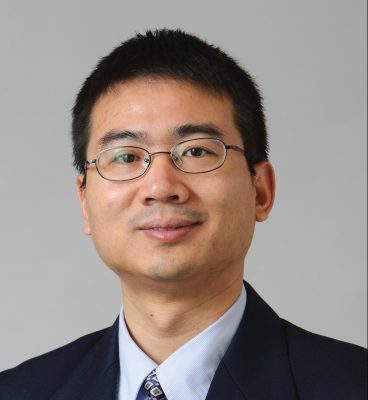
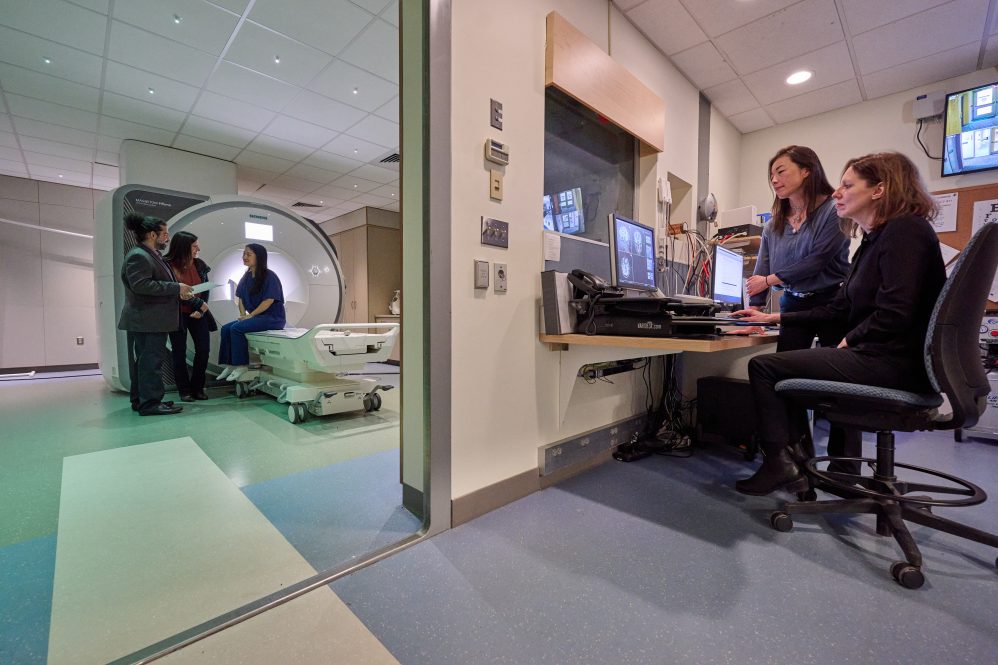
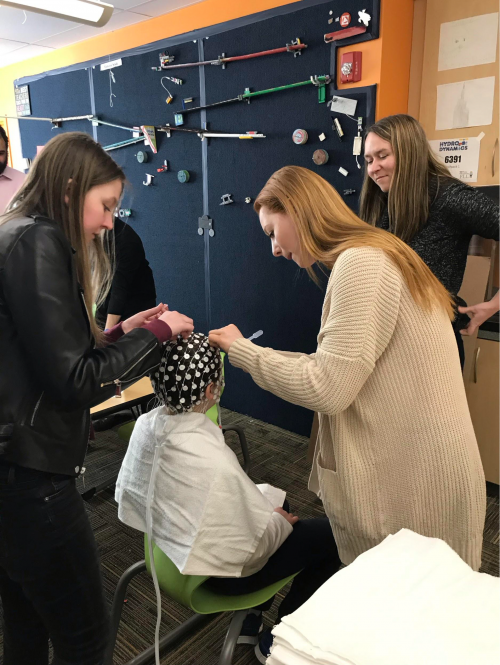
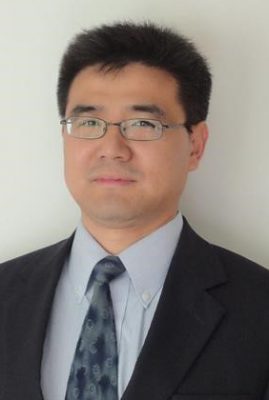
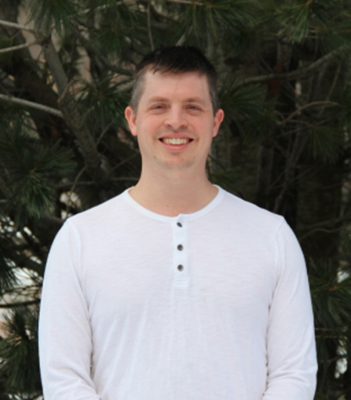

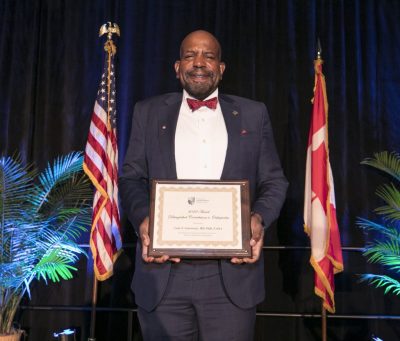
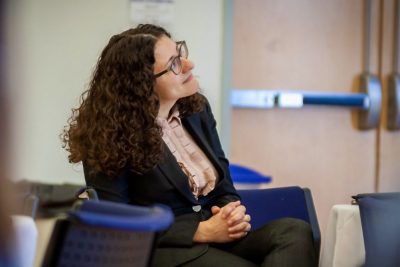
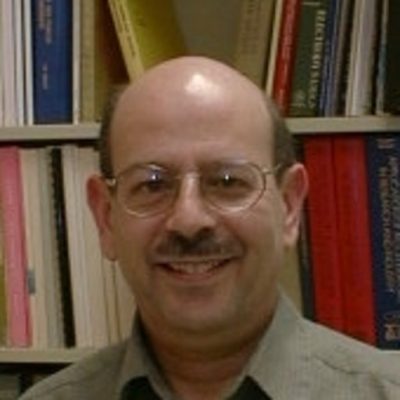 IMS is saddened to report the recent passing of Dr. Jeffrey Schweitzer, Professor in the department of Physics with an appointment in IMS. We are grateful to Dr. Peter Schweitzer (not related) for the following recap of Dr. Schweitzer’s background and tenure at UConn:
IMS is saddened to report the recent passing of Dr. Jeffrey Schweitzer, Professor in the department of Physics with an appointment in IMS. We are grateful to Dr. Peter Schweitzer (not related) for the following recap of Dr. Schweitzer’s background and tenure at UConn: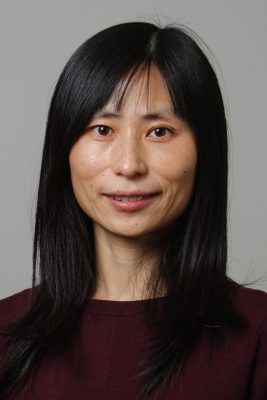
 The Connecticut Invention Convention (CIC), an internationally recognized educational organization started in 1983, provides curriculum for use by Connecticut K-12 teachers to develop creative problem-solving and critical thinking skills through invention and entrepreneurship. CIC curriculum is standards-based and enables students to research, analyze and effectively focus on and solve their real-life problems.
The Connecticut Invention Convention (CIC), an internationally recognized educational organization started in 1983, provides curriculum for use by Connecticut K-12 teachers to develop creative problem-solving and critical thinking skills through invention and entrepreneurship. CIC curriculum is standards-based and enables students to research, analyze and effectively focus on and solve their real-life problems.